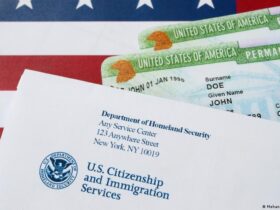Nigerian health experts have warned that rapid urbanisation, sedentary lifestyle, fried foods and sugary diets are leading to a rise in diabetes. There has been a sharp increase in cases of type 1 diabetes in particular, while low awareness and limited screening means many young Nigerians remain undiagnosed.
“We are now seeing diabetes in young people,” said Mary Nkem Babalola, a public health worker with the Funmilayo Florence Babalola Foundation, which fights the disease in disadvantaged Nigerian communities.
“We need prompt testing, public education and access to affordable testing kits and insulin,” he said.
Watrahyele Mashelia, 21, from Abuja, told DW that she never understood the long-term risks.
“So, at 16, when I was diagnosed, I didn’t really understand what was going on,” she said.
“The doctors and nurses explained, but they didn’t explain that much. They just told me to take my medications and that it shouldn’t hurt.”
When Mashelia left home for university, she stopped taking her medicines because she was feeling better. A car accident changed that four years later.
“Due to diabetes, I broke my leg and it didn’t heal for a year. I realized it was a very serious condition,” he said.
‘Pandemic level’
Nigerian health officials have warned that the surge is rapidly becoming one of the country’s most urgent public health threats.
According to the Diabetes Association of Nigeria, there are now 11.4 million people living with diabetes in Nigeria, one of the highest figures in sub-Saharan Africa.
The figure for diagnosed cases alone exceeds the combined populations of Namibia, Botswana and Lesotho, although it is a fraction of Nigeria’s approximately 220 million citizens.
The association has urged the government to declare a state of emergency on diabetes care.
“This is more than a crisis now, it’s an epidemic, it’s devastating,” Ejiofor Ugwu of the Diabetes Association of Nigeria told DW.
“The 11.4 million people represent only those patients who have been diagnosed and this is less than half of the people living with diabetes in Nigeria,” he said. “About 30,000 to 40,000 Nigerians are dying every year from diabetes. This is no joke.”
Global organizations have also expressed similar concerns. The World Health Organization estimates that diabetes will become the seventh leading cause of death by 2030, while the International Diabetes Federation estimates that more than 24 million Africans are currently living with the condition.
Diabetes has flown under the radar while infectious diseases dominate Africa’s health agenda. But experts warn of deep impacts on homes, health systems and economies.
What will be achieved by emergency declaration?
The Diabetes Association said the emergency situation would force the federal government to develop a national response plan and introduce targeted policies.
“We are advocating for the federal government to subsidize essential diabetes medicines,” Ugwu said. “Tax exemption on imported diabetes drugs will reduce landing costs and make them more affordable.”
Currently, Nigeria’s national health insurance scheme does not cover most diabetes medicines or basic consumables such as glucose meters and test strips, leaving many patients unable to manage the disease.
Awareness, affordability remain hurdles
Cost remains one of the biggest barriers to diagnosis and treatment.
“Access to testing, affordability of medications, it forces people to ignore diabetes until it becomes a crisis,” said Olisa Chukwuma, DW’s Nigeria correspondent.
A pack of glucose-testing strips costs 15,000–17,000 naira (about €10). Even a test now costs 1,000 naira (€0.60), up from 100 naira a few years ago.
The International Diabetes Federation recommends annual blood-glucose screening for adults over 40 and families over 18 with a history of diabetes or obesity. But it is out of reach for many Nigerians.
Why are cases increasing?
Health experts have linked the diabetes increase to rapid urbanization and lifestyle changes, including heavy consumption of processed foods and falling levels of physical activity.
“We have adopted a Western diet. Most of our food is unhealthy. Physical inactivity is a major risk factor,” Ugwu said.
If not controlled, diabetes can damage the heart, eyes, kidneys and nerves. WHO says diabetes is affecting people at all stages of life, from childhood to old age.
Edited by: Cai Nebe






Leave a Reply